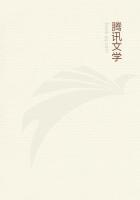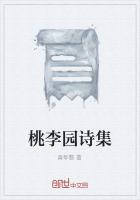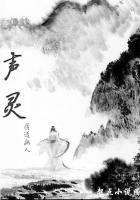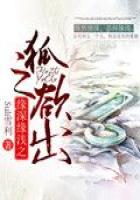Is n't this book enough to scare any of you? I said, as Delilah dumped it down upon the table. The teacups jumped from their saucers as it thumped on the board. Danielis Georgii Morhofii Polyhistor, Literarius, Philosophicus et Poeticus. Lubecae MDCCXXXIII. Perhaps I should not have ventured to ask you to look at this old volume, if it had not been for the fact that Dr. Johnson mentions Morohof as the author to whom he was specially indebted. --more, I think, than to any other. It is a grand old encyclopaedic summary of all the author knew about pretty nearly everything, full of curious interest, but so strangely mediaeval, so utterly antiquated in most departments of knowledge, that it is hard to believe the volume came from the press at a time when persons whom I well remember were living. Is it possible that the books which have been for me what Morhof was for Dr. Johnson can look like that to the student of the year 1990?
Morhof was a believer in magic and the transmutation of metals.
There was always something fascinating to me in the old books of alchemy. I have felt that the poetry of science lost its wings when the last powder of projection had been cast into the crucible, and the fire of the last transmutation furnace went out. Perhaps I am wrong in implying that alchemy is an extinct folly. It existed in New England's early days, as we learn from the Winthrop papers, and I see no reason why gold-****** should not have its votaries as well as other popular delusions.
Among the essays of Morhof is one on the "Paradoxes of the Senses."
That title brought to mind the recollection of another work I have been meaning to say something about, at some time when you were in the listening mood. The book I refer to is "A Budget of Paradoxes," by Augustus De Morgan. De Morgan is well remembered as a very distinguished mathematician, whose works have kept his name in high honor to the present time. The book I am speaking of was published by his widow, and is largely made up of letters received by him and his comments upon them. Few persons ever read it through. Few intelligent readers ever took it up and laid it down without taking a long draught of its singular and interesting contents. The letters are mostly from that class of persons whom we call "cranks," in our familiar language.
At this point Number Seven interrupted me by calling out, "Give us some of those cranks' letters. A crank is a man who does his own thinking. I had a relation who was called a crank. I believe I have been spoken of as one myself. That is what you have to expect if you invent anything that puts an old machine out of fashion, or solve a problem that has puzzled all the world up to your time. There never was a religion founded but its Messiah was called a crank. There never was an idea started that woke up men out of their stupid indifference but its originator was spoken of as a crank. Do you want to know why that name is given to the men who do most for the world's progress? I will tell you. It is because cranks make all the wheels in all the machinery of the world go round. What would a steam-engine be without a crank? I suppose the first fool that looked on the first crank that was ever made asked what that crooked, queer-looking thing was good for. When the wheels got moving he found out. Tell us something about that book which has so much to say concerning cranks."
Hereupon I requested Delilah to carry back Morhof, and replace him in the wide gap he had left in the bookshelf. She was then to find and bring down the volume I had been speaking of.
Delilah took the wisdom of the seventeenth century in her arms, and departed on her errand. The book she brought down was given me some years ago by a gentleman who had sagaciously foreseen that it was just one of those works which I might hesitate about buying, but should be well pleased to own. He guessed well; the book has been a great source of instruction and entertainment to me. I wonder that so much time and cost should have been expended upon a work which might have borne a title like the Encomium Moriae of Erasmus; and yet it is such a wonderful museum of the productions of the squinting brains belonging to the class of persons commonly known as cranks that we could hardly spare one of its five hundred octavo pages.
Those of us who are in the habit of receiving letters from all sorts of would-be-literary people--letters of inquiry, many of them with reference to matters we are supposed to understand--can readily see how it was that Mr. De Morgan, never too busy to be good-natured with the people who pestered--or amused-him with their queer fancies, received such a number of letters from persons who thought they had made great discoveries, from those who felt that they and their inventions and contrivances had been overlooked, and who sought in his large charity of disposition and great receptiveness a balm for their wounded feelings and a ray of hope for their darkened prospects.
The book before us is made up from papers published in "The Athenaeum," with additions by the author. Soon after opening it we come to names with which we are familiar, the first of these, that of Cornelius Agrippa, being connected with the occult and mystic doctrines dealt with by many of De Morgan's correspondents. But the name most likely to arrest us is that of Giordano Bruno, the same philosopher, heretic, and martyr whose statue has recently been erected in Rome, to the great horror of the Pope and his prelates in the Old World and in the New. De Morgan's pithy account of him will interest the company : "Giordano Bruno was all paradox. He was, as has been said, a vorticist before Descartes, an optimist before Leibnitz, a Copernican before Galileo. It would be easy to collect a hundred strange opinions of his. He was born about 1550, and was roasted alive at Rome, February 17, 1600, for the maintenance and defence of the Holy Church, and the rights and liberties of the same."

